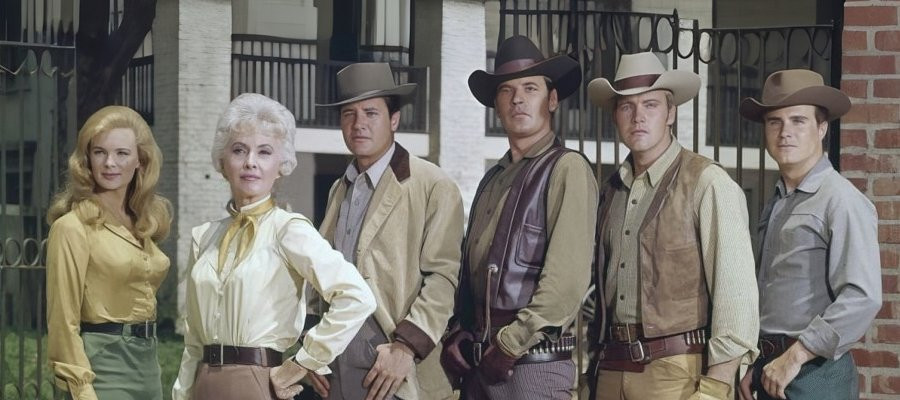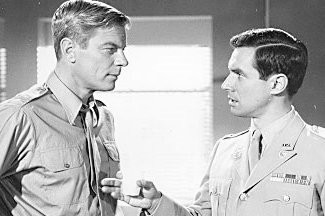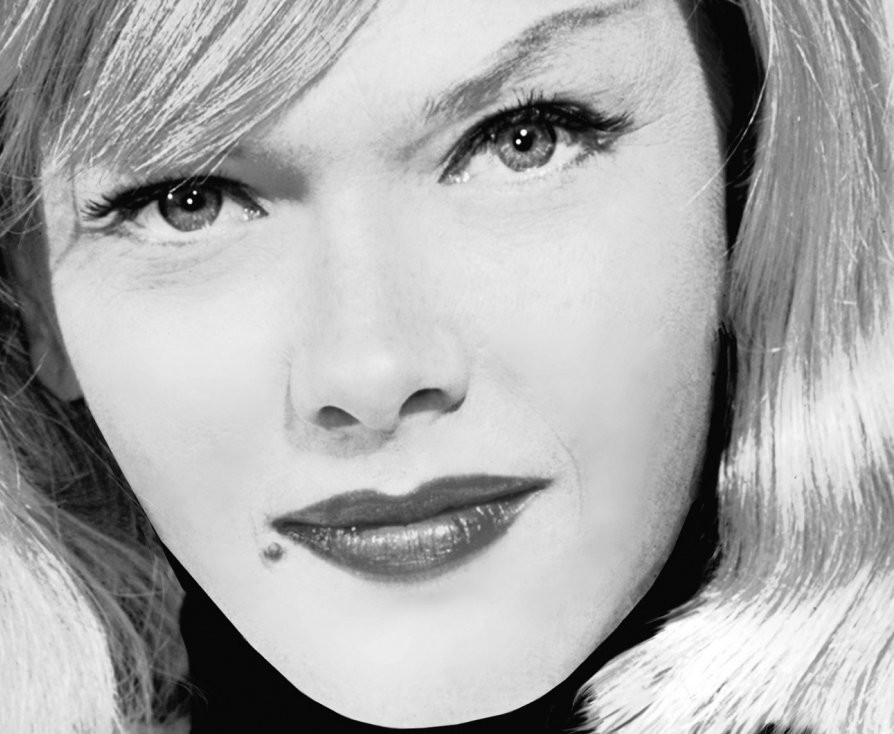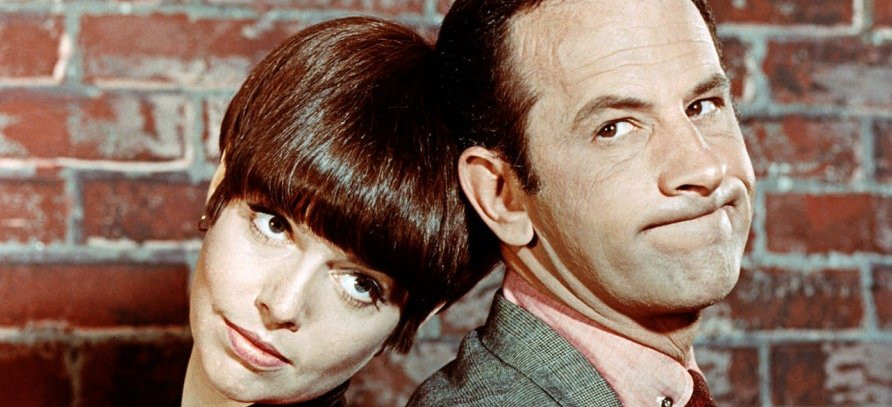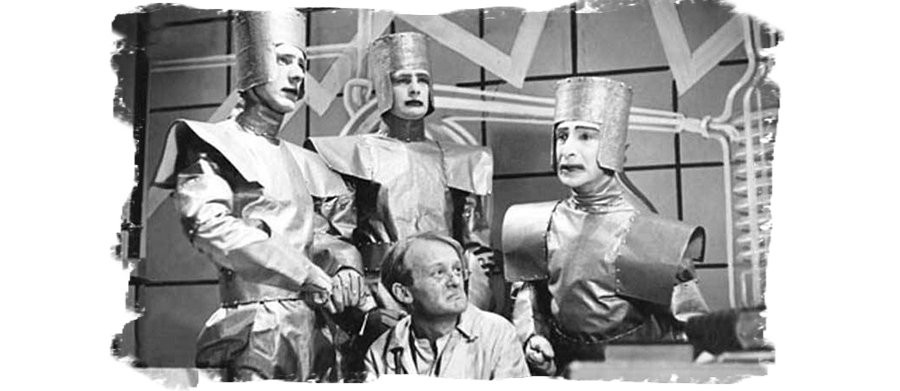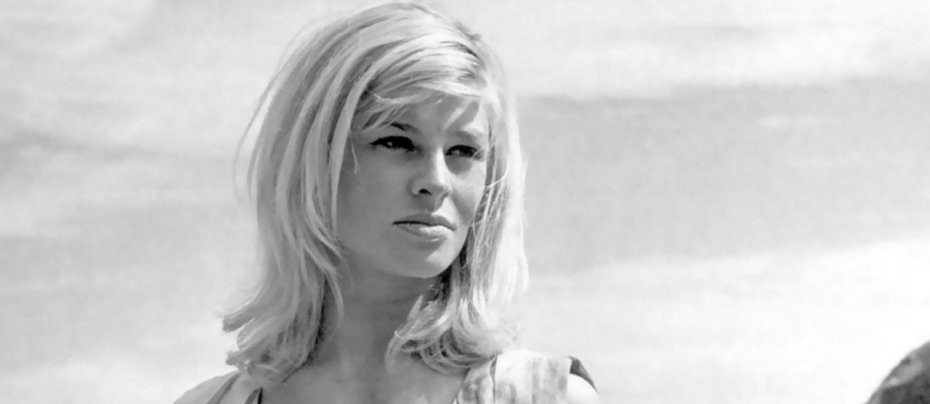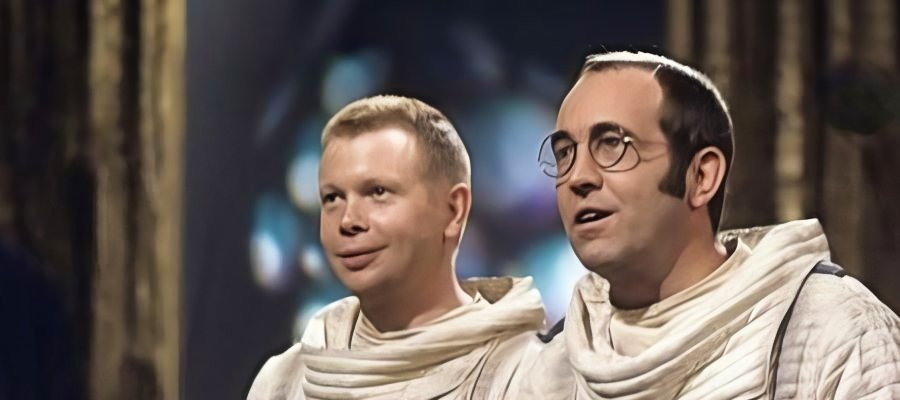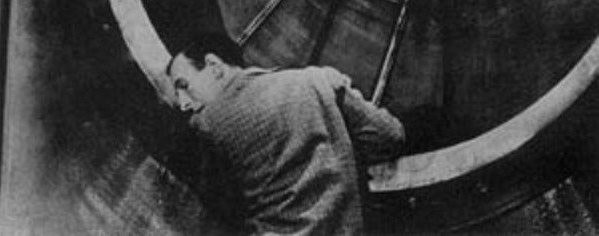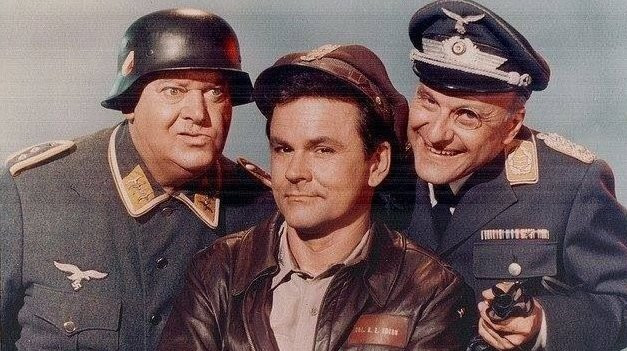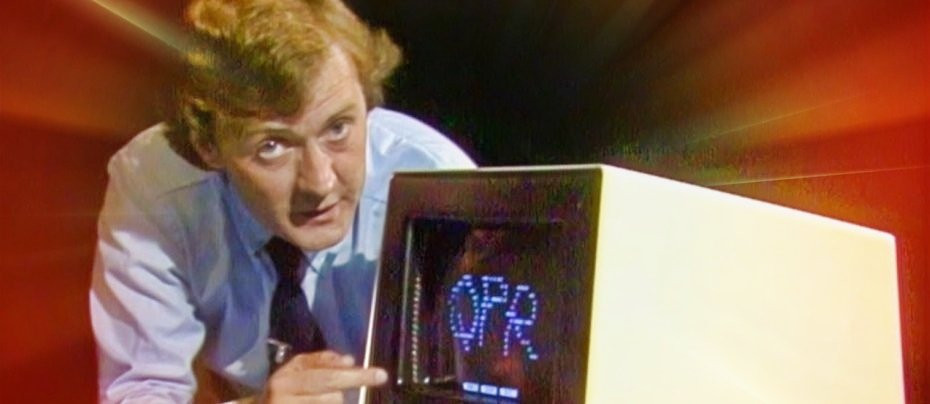
Tomorrow's World
1965 - United KingdomBeginning in 1965, the BBC's flagship science and technology programme, Tomorrow’s World, with its mix of offbeat film reports and live experiments, which sometimes went perilously wrong, kept the viewing public informed about the latest inventions from the most trivial to the most important which, or so it told us, would improve our lives and benefit mankind.
Writing in the Radio Times on the week that the programme was launched, the series deviser, Glyn Jones wrote: 'You will see the work of men and women who are shaping both the present and the future - for, as the title suggests, tomorrow's world is in the making today. Ultimately, this work is likely to have the most powerful effect on the nature and quality of life. It's variety, abundance, and importance will, we believe, make fascinating television.' And fascinating television it was indeed, for Tomorrow's World (originally subtitled…in the making today - a title dreamed up by Jones and his wife the day before that edition of Radio Times went to press), held viewers intrigue for over three decades. Not bad for a show that was meant to be a six-week summer filler.
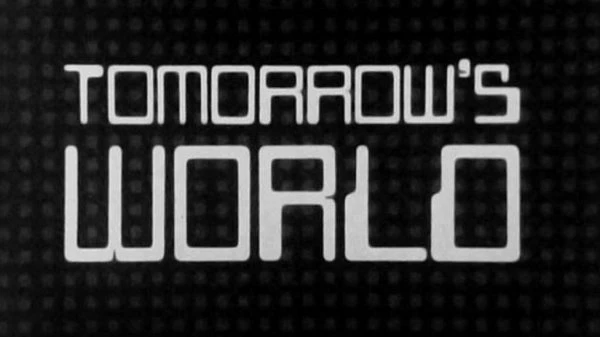
The first episode featured brain surgery, robots in factories and a school which had begged enough money to buy its own computer. The transmission of this first edition was scheduled between Welsh sitcom Lil and the Miss Interflora/GPO 1965 beauty pageant. I kid you not. The theme tune for the first six episodes was composed by Marius Constant, but when the series returned in November 1965, it featured a distinctive and catchy new theme composed by Johnny Dankworth.
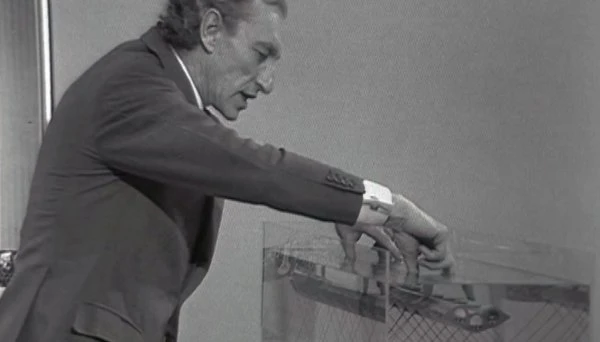
Introduced by Raymond Baxter, an experienced and self-assured presenter who exuded an air of proficiency, the series was broadcast live and kept viewers on the edge of their sofas, not only to wonder at the latest invention but also wondering if the demonstrations presented to them would end in failure. They sometimes did – during a demonstration of a new type of car jack which required less effort to operate, the jack disintegrated – and these failures often prompted the presenter to assure viewers that “it worked perfectly in rehearsals.” An occasional inventors' feature was also introduced by Bob Symes, an Austrian inventor who presented viewers crazy and weird creations that never caught on, despite Bob's enthusiastic catchphrase "it's clever, isn't it?"
The series also relied on some outside broadcast filmed sequences which were narrated by Derek Cooper, whose tones were familiar to viewers of Michael Apted’s 7 Up documentaries, and futurologist James Burke, a former English teacher turned BBC science correspondent, joined Baxter in the early days of the series, before going on to host his own series, The Burke Special. Baxter continued to host the series for twelve years and saw it through its heyday when the viewing figures touched 10+ million.
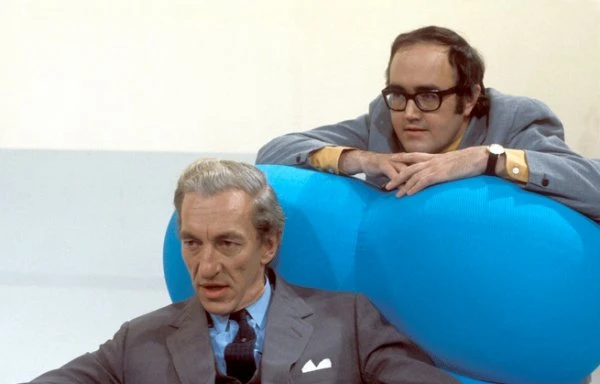
Among the new technology that the series introduced, which is in everyday use today, was the home computer (1967), the breathalyser test (1967), touch screens (1967), ATM machines (1969), the pocket calculator (1971), digital watches (1972), mobile phones (1979), barcode readers (1983), and targeted radiotherapy for breast cancer (2000). But not all the inventions proved successful and many that appeared on the show, such as a fold-up car that fit into a suitcase, were never seen again.
Other non-essential or lifechanging introductions were (arguably) the CD player, the first television video games (in this case the very basic tennis game), and artificial grass. Tomorrow's World also frequently ran exhibitions, called "Tomorrow's World Live", which offered the general public the chance to see at first hand a variety of brand new, pioneering inventions.
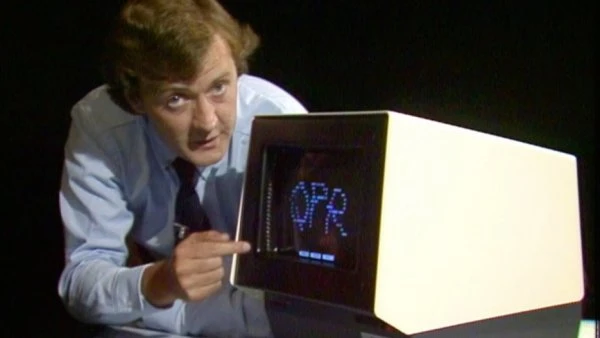
Following Baxter’s departure, the BBC revamped the programme, bringing in a younger, perhaps not so ‘stuffy’ presenting team that included William Woollard, Judith Hann, Michael Rodd, Kieran Prendiville, in the 1970s and Anna Ford, Howard Stableford and Maggie Philbin in the 1980s. But by the 1990s viewers were complaining about the ‘flippant’ style of the programme. By this time the programme was pre-recorded which also detracted from the immediacy of Tomorrow’s World.
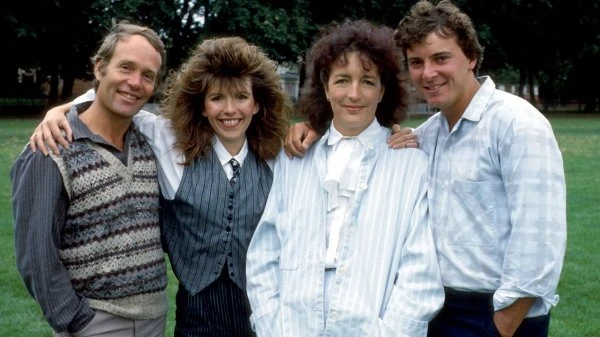
Ironically, by the turn of the millennium, technology had caught up with, and was beginning to surpass Tomorrow’s World. What a 1960s audience marvelled at, the new millenniums took for granted and the series became less significant. In 2000, the BBC launched Click Online, a weekly BBC on-line programme covering technology news and recent developments in the world of IT and the Internet which was more relevant to the modern age, and Channel 5 introduced The Gadget Show in 2004. Tomorrow’s World had been cancelled the year before that. It did return in 2018 for a one-off live special, with Hannah Fry and four presenters from the show's original run: Maggie Philbin, Howard Stableford, Judith Hann and Peter Snow. The 90-minute interactive show was broadcast on BBC4. But by that time Tomorrow’s World had become yesterday’s news.
Seen this show? How do you rate it?
Seen this show? How do you rate it?
Published on July 14th, 2022. Written by Marc Saul for Television Heaven.


